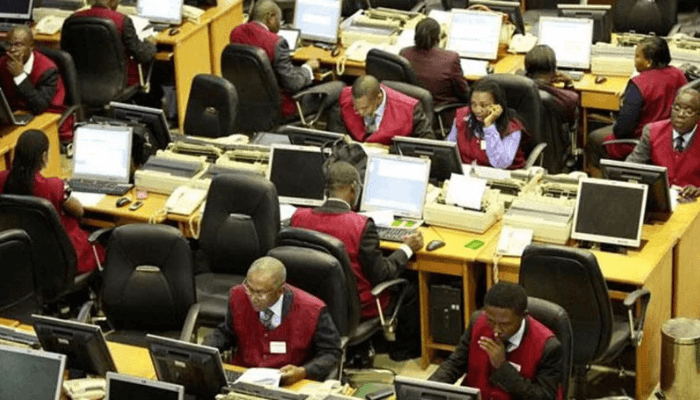Nigeria’s stocks new low offers re-entry opportunities after Trump’s effect
Nigeria’s equities market’s new level offers investors buy opportunities for value hunters after Trump’s recent statement impacted naira assets.
The equities market closed the week to November 7 on a bearish note, with investors losing about N2.8 trillion in market capitalisation amid sustained sell pressure on bellwether stocks.
US President Donald Trump’s recent threat to launch a military invasion of Nigeria raised the risk premium on Nigerian assets, including stocks, threatening to erode recent gains achieved by the nation’s reforms.
Speaking on the market’s new low, Jude Chiemeka, CEO, Nigerian Exchange Limited, told BusinessDay that the current correction presents a timely opportunity for investors to reposition their portfolios for long-term value creation.
“Periods like this remind us of the importance of diversification,” Chiemeka said.
“A well-diversified portfolio, across equities, fixed income, and alternative assets, helps investors manage risk and capture opportunities as the market recalibrates. The recent pullback provides attractive re-entry points for those with a disciplined, long-term approach,” he added.
Despite the sharp decline, market analysts describe the development as a healthy correction in a cyclical market, offering opportunities for investors with long-term horizons and diversified portfolios.
Data from Nigerian Exchange Limited (NGX) showed that the All-Share Index (ASI) dropped by 2.11 percent week-on-week to close at 149,524.83 points, while market capitalisation fell to N94.9 trillion from N97.7 trillion in the previous week. The week also saw reduced activity levels, with investors exchanging 527 million shares in 8,256 deals, compared to 619 million shares the week before.
Read also: Stocks see highest daily dip of N1.3trn in November
However, investment analysts maintain that the pullback is not unusual and reflects the cyclical nature of financial markets. According to them, the current dip could pave the way for renewed interest in undervalued stocks and a more stable market trajectory in the weeks ahead.
The NGX’s N2.8 trillion loss underscores short-term volatility but also presents opportunities for investors with a long-term view and diversified strategy.
“What we are seeing is a normal market correction after a period of strong gains. It’s part of the cycle,” said a Lagos-based portfolio manager. “For long-term investors, this is a good time to reassess portfolios and look for quality stocks trading at a discount.”
Market participants agree that patience and disciplined portfolio management remain key to navigating Nigeria’s evolving investment landscape.
Also, market watchers attributed the decline to profit-taking following recent rallies, as well as concerns around fiscal policy proposals, including the planned 25 percent capital gains tax expected to take effect in January 2026. Others cited the impact of global economic uncertainty and portfolio rebalancing by institutional investors.
Financial experts also advised investors to embrace portfolio diversification as a risk-management strategy during volatility. Diversification across asset classes, such as fixed income, equities, ETFs, and derivatives, can help cushion losses and provide more consistent returns over time.
Despite short-term market headwinds, Nigeria’s macroeconomic fundamentals and the ongoing reforms in the capital market continue to provide optimism for medium- to long-term growth. Many listed companies remain profitable, with strong dividend histories and expansion plans across key sectors such as financial services, consumer goods, and energy.
As investors digest the week’s downturn, analysts urge restraint and perspective. The market’s recent pullback, they say, should be viewed as a pause for recalibration, a necessary cooling phase that can create entry points for disciplined investors positioned for the next upturn.
In nine months to September 2025, the total value of equities transactions on the Nigerian Exchange Limited (NGX) reached N8.538trillion.
According to the September report on domestic and foreign portfolio participation in equity trading, foreigner portfolio investors traded equities valued at N1.840trillion or 21.56 percent, while domestic investors equities transaction in the nine months period was N6.697trillion or 78.44 percent of the total value traded.
Foreign inflow into Nigeria stocks was N1.030trillion in nine months while foreign outflow in the same period was N810.39billion. Domestic retail investors traded stocks worth N2.611trillion while their institutional counterparts accounted for N4.086trillion worth of equities transaction in nine months under review.

